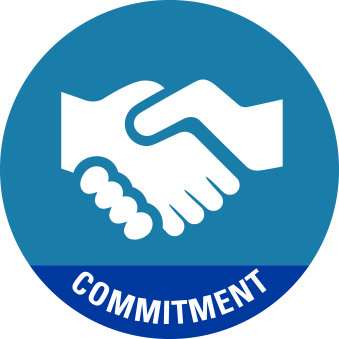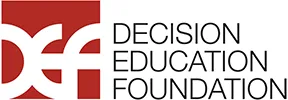Keep Enhancing Your Decision Skills
The decision process we recommend builds learning into making each specific decision: go through the decision—once quickly—not to decide, but to identify what you may be missing in the six links. Then, before you really decide, use that learning to improve the weakest elements in the decision.
Keep Sharpening Your Decision Skills
Learning from Outcomes
We all remember times when we made poor choices and didn’t follow quality decision-making principles. Reflecting on the outcomes of our decisions is a powerful way to continue to improve our decision skills. There is truth in the statement, “There is no decision failure except the failure to learn.”
Because decisions are about the future and the future is uncertain, learning from outcomes takes special effort. The connection between our actions and outcomes is often obscured because of uncertainty, delayed feedback, and actions we take after a decision to improve the outcome. We can make a quality decision and have a bad outcome. We can make a bad decision and have a good outcome. We have to be careful not to draw the wrong conclusions.
We keep asking, in retrospect, did I miss something that I want to take into account in future decisions? Did I take a risk maybe I shouldn’t have? If I were in a similar situation again, would I like to proceed differently?
Learning from outcomes requires a disciplined analysis of what happened and why. Of course, we don’t need to learn only from our own mistakes or successes. We can observe others, or we can practice in safe environments.
Sports coaches have learned to:
(1) make careful observations (how often is your first serve off in tennis);
(2) introduce just one change at time (change your stance slightly);
(3) observe your play in slow motion (via video); and
(4) develop a mental model of how to do things better.
Becoming a better learner is a continuing challenge
Biases lead to developing greater confidence or stronger convictions than we should rightly hold. Look around, and we see ample evidence of strong views— often built on sparse evidence—in politics, in parenting, in cliques. Looking carefully and with an open mind, we find such prejudices in ourselves. We are further prone to vigorously defend our views, especially in debating situations. Such defensive posturing makes it even harder to change our mind when the evidence suggests that we should.
If we really wish to learn and grow, we have to make a special effort to overcome our natural tendencies and remain open to learning. We call that being in a learning frame, and it is a mindset we can practice. We can check in on ourselves and ask, “Am I in a learning frame or defending my position?” We can develop the habit of asking open questions to understand others’ perspectives— “Why would you conclude this?” or “What is your rationale for that?” or “Do you have evidence for that?”—rather than defending our position. We can make learning a decision objective. When deciding where to go for dinner, we might rank options based on price, food quality, ambiance, or travel distance. But we could also add another attribute, “learning something new,” which may change our ranking from the same old places to choices that we would not have considered.
So, ask for every decision—either routine or big—is there a learning opportunity here? And, if the answer is yes, consider including it as part of your evaluation criteria as well as your options.

